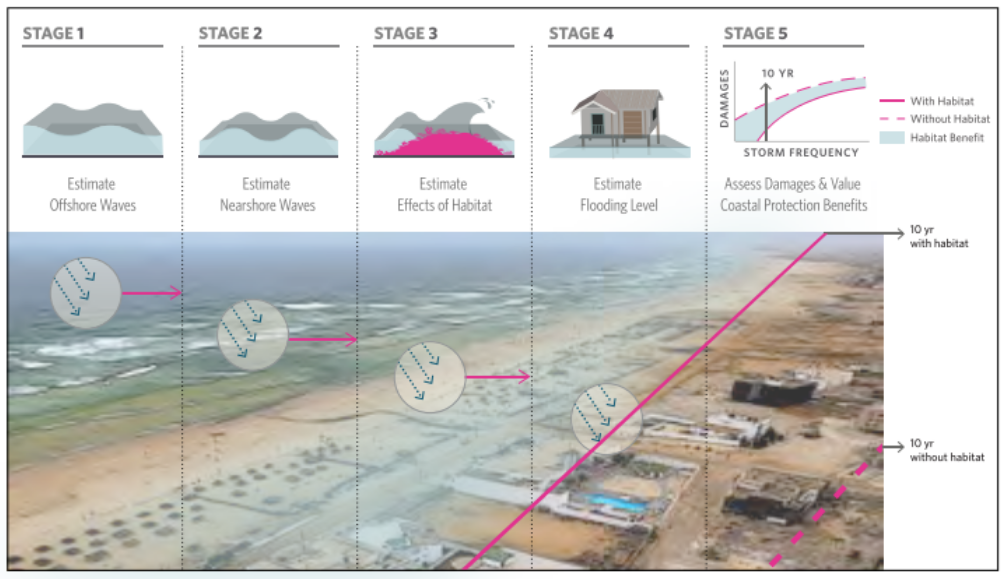Millions of people are at risk from storm surges, sea-level rise, and other natural hazards due to coastal development and climate change. Coastal habitats like mangroves, coral reefs, and salt marshes can reduce those risks, and protect lives and property in a more cost-effective way, providing benefits to coastal species as well as the human communities relying on them.
OUR APPROACH: This team explored and synthesized information on how healthy coastal habitats can help protect coastal communities and livelihoods from the impacts of extreme storm events, such as hurricanes.
Team Status:
The team synthesized information on natural habitats and organized it in a publicly available, free database. This collection includes 67 examples of natural coastal defenses around the globe, demonstrating that coastal habitats can and do provide considerable protection to coastal communities. The ultimate goal of this database is to provide lessons and guidance for the effective management and use of habitats for coastal defense.
Damage Prevented during Hurricane Sandy
Together with leaders in the insurance and risk management industries, such as Lloyd’s of London, Risk Management Solutions, and Guy Carpenter and Company, the team put a dollar value on the risk reduction provided by coastal wetlands. They discovered that coastal wetlands prevented more than $625 million in property damages along the Northeast coast during Hurricane Sandy and reduced property damages by 10% on average. By highlighting the direct and quantifiable benefits wetlands can provide, the team helped companies and communities understand how they can conserve, restore, and benefit from natural defenses.


“This work shows the unlikely yet powerful benefits of collaboration between insurers, engineers, and conservationists in identifying solutions to reduce risks to people, property, and nature.”
– Mike Beck, Project co-leader